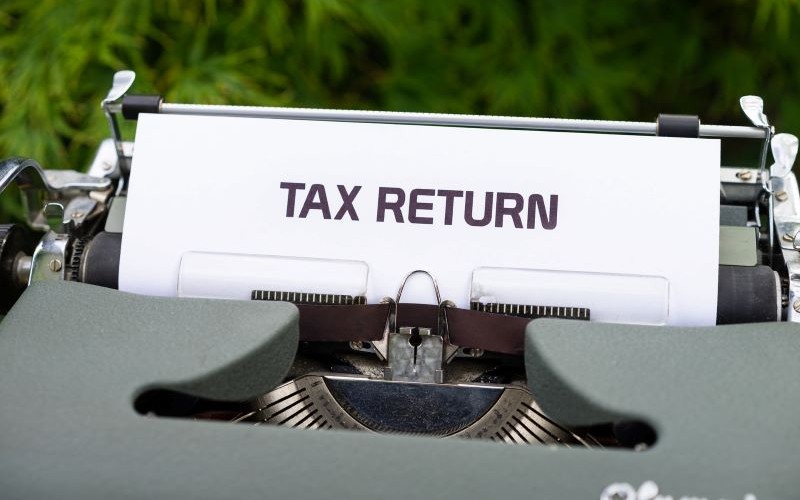The ATO could go after large multinationals for downplaying their profits, or offshoring them totally, and reap billions. But every year it seems like there’s a new group of people they target - small businesses buying assets, Bitcoin bros hiding their crypto gains, Sharon the cleaner claiming too much on laundering her uniforms and so on.
Ten Tax Traps to Avoid this End of Financial Year
10. Not even completing a tax return
A recent survey of nearly 1,500 Australians commissioned by Officeworks revealed that one in four don’t even complete a tax return every year. And before you jump to conclusions, Millennials have the highest completion rate, at 90%.
Tax expert and chartered accountant Dr Adrian Raftery said he once processed 33 years' worth of tax claims for one client, and netted more than $70,000 in refunds for all those missed years. However, skipping out on tax filing is not recommended - the ATO might ask you to ‘please explain’.
It’s now arguably easier than ever to complete a return through MyGov and the ATO portal. All payment summaries are automatically uploaded, and it presents to you a final figure. You can either agree with that figure, and complete the return, or submit deductions. This works well for those who have simple returns or who don’t have any deductions to make.
9. Small businesses not getting their affairs in order
There are quite a few advantages at tax time for small businesses, however Dr Raftery says there are a couple of lesser-known tips that business owners can take advantage of.
-
Splitting income: “It amazes me how many smart business people are really dumb when it comes to reducing tax,” Dr Raftery said. “Too often I see them paying 47% tax on income, which could be in put under their lower taxed spouse (0% or 16.5%) or company (26%). If you are paying a wage to your spouse from your business, ensure that you can justify the amount paid based on the time and the skillset required.”
-
Salary sacrifice super: “Small business owners can have their business contribute up to $25,000 per year into super which is only taxed at 15% within the fund and claim a tax deduction for the contribution (26% for small companies and potentially 47% for sole traders).”
8. Neglecting gig economy and cash income
If you’ve signed up to Airtasker, Uber, Deliveroo, and so on and so forth, the ATO could be closely watching your income from these streams, whether it’s a side gig or a full-time affair.
A recent survey of nearly 1,800 Australians commissioned by H&R Block revealed nearly a third believe the ATO will be more closely scrutinising their tax return this year.
Dr Raftery says cracking down on gig economy workers can be “quite lucrative” for the ATO.
“If you advertise on the internet and customers/guests are paying electronically then expect the ATO to find out about it. Ignorance is not an excuse for non-declaration of income from these household names [Uber, Airtasker, etc],” he said.
The humble ‘cashie’ has also been a stalwart among domestic trades for many years, even with the uptake of debit and credit cards. But you still need to declare cash income!
“The ATO has a very successful track record of its own with the Black Economy Taskforce raising $787 million in liabilities and an estimated $696 million in cash collections in 2019/20 alone,” Dr Raftery said.
“You may think that the income is so little that the ATO won’t bother, but the cash economy is huge and is a perennial favourite on the taxman’s hit list.”
7. Not building up a savings buffer
H&R Block’s survey revealed 44% will be putting their tax refund (if there is one) back into their savings account. A quarter are also looking at paying off debt. The breakdown of tax refund size for 2020 was as follows:
-
Under $1,000 – 27%
-
Between $1,000 and $4,999 – 32%
-
Between $5,000 and $9,999 – 7%
-
Between $10,000 and $49,999 – 3%
While it’s your money and you can do what you like (such as fill that 75-inch TV-sized hole in your life) building up an emergency fund could be a wise move. This is especially the case with COVID uncertainty, and if you’re a casual worker who has to bear the brunt of some states' snap lockdowns. It’s generally recommended you save at least one to three months' worth of living expenses for your emergency fund.
6. Retirees not worrying about tax
Just because you’re retired, or looking at retiring, doesn’t mean you don’t need to worry about tax.
Quite the opposite, according to AMP financial adviser Andrew Heaven.
“With the end of financial year quickly approaching, there are several opportunities available to retirees as well as those approaching retirement. For example, Australians with some spare cash might opt into bolstering their super balances through before-tax (concessional) superannuation contributions,” Mr Heaven told Savings.com.au.
“However, there are some traps that both retirees and pre-retirees should keep an eye on. Some of these include taking care to ensure that you don’t exceed concessional or non-concessional contribution caps.
“For before-tax super contributions, the cap until 30 June 2021 is $25,000 and if this cap is exceeded, the excess concessional contributions amount will be included in your assessable income and this amount will be taxed at your marginal tax rate – meaning you’ll pay extra income tax.
“A similar result applies for after-tax contributions which have a cap of $100,000 (although this increases to $110,000 after 1 July 2021) – if this cap is exceeded you may need to pay additional tax.”
Mr Heaven also reminded people to check their eligibility for any bring-forward arrangements.
“As of this financial year, only Australians under 65 years of age are eligible, although this is due to be increased to 67 years from 1 July 2021. What this means is that if you make contributions above the annual non-concessional contributions cap, you may be eligible to automatically gain access to future year caps.
“The great thing about this is that it allows you to make extra non-concessional contributions without having to pay extra tax.”
5. Dubious travel expenses
COVID has put a halt to much travel, both for work and leisure. CPA’s (Certified Practising Accountants) senior manager of tax policy Elinor Kasapidis said the ATO is keeping an eye on travel claims.
“COVID-19 has significantly decreased international and interstate trips as well as local travel. The ATO is expecting reduced travel and motor vehicle expenses and will be checking unusual claims,” Ms Kasapidis said.
Dr Raftery has a few tips for those looking to claim travel expenses.
“If you use your car for work purposes, keep a 12-week log book. Make sure that you keep all costs associated with the running of your car for the whole year, not just the log book period,” he said.
“If you make a claim for motor vehicles expenses under the log book method then it is obvious that make sure that you actually have a log book prepared in the correct format.
“It must be for a continuous 12 week period and prepared within the last five years. If you have changed your car or your job duties since you did your log book then you must prepare a new one.”
4. Fudging rental property income
If you’ve got an investment property, be aware; the ATO is also watching dubious rental income expense claims. It’s undoubtedly been a tough year for some investors, particularly those leasing apartments in the inner-city, with high vacancy rates and lack of students. At the same time it also forced us to holiday domestically, and potentially enjoy those investment properties as holiday rentals.
If your property is negatively geared, it’s important to get the tax claims right, according to Dr Raftery.
“If you use part or all of your property for private purposes during the year (including holiday homes) then rental expenses will need to be apportioned. And don’t claim the interest on the portion of rental property loans that you refinanced/redrawn for private expenses such as holidays or a new car,” he said.
“Negative gearing losses might be quite high this year. It might be a good idea to complete a PAYG Withholding Variation form for 2021/22 if these increased losses are prolonged, and you are struggling with cashflow especially as the banks are no longer offering mortgage holidays.”
The PAYG withholding variation reduces the tax from your monthly pay, and Dr Raftery says this acts as “mini tax return”.
Dr Raftery also recommends contacting your real estate agent or property manager to ask them for a summary of income and expenses to make the tax return process easier.
3. Don’t ‘poke the bear’ and hide income
CPA Australia’s Ms Kasapidis says this year it’s important not to poke the ATO bear.
“Most transactions where money changes hands leave a digital footprint and the ATO has even greater information gathering powers than the police,” Ms Kasapidis said.
“If you’re thinking of playing hide and seek with the ATO, don’t expect them to close their eyes and count to ten. Assume they have full line of sight on your income and don’t poke the bear.
“People sometimes forget that paying tax is a good thing. The past 18 months is a great reminder of why we do it. The economic stimulus that kept millions of Australians and small businesses afloat during the pandemic is being paid for with our taxes.”
Or, to keep it simple: “If you earned money, you need to report it.”
2. Miscalculating sharemarket and cryptocurrency returns
The last year has been a pretty bumper run for the sharemarket and for cryptocurrencies, but H&R Block’s director of tax communications Mark Chapman said this is an area that the ATO is watching.
“Australians who have done well on the share market, with property or even with Bitcoin during the past year face being audited if they get their returns wrong,” he said.
“Australians can face a 25% penalty for carelessly miscalculating how much they earned from shares, investment properties, and now cryptocurrency.”
So whether you’re invested in BHP, Wesfarmers, or Bitcoin, Dogecoin or C*mRockets, it’s important you dot your I’s and cross your T’s this year.
1. Not claiming work-from-home expenses
A little thing called coronavirus changed a lot of people’s working lives, not least of which was sending a large cohort of office workers home for a while. Many of us are still working from home in some capacity, and Dr Raftery says this is a big cohort who might not be claiming as they should.
“Whilst you can use the ATO’s shortcut method of 80 cents per hour it will probably be less than actual deductions for the work-related portion of home telephone, internet, stationery, printers, computer equipment and consumables together with the 52 cents per hour claim for electricity under the fixed costs method,” he said.
By the same token, any claims over $300 are going to be more closely-scrutinised by the ATO, so having a paper trail can help.
Dr Raftery also says it’s easier to keep track of receipts in the ‘MyDeductions’ feature in the ATO app as you proceed through the financial year.
“Times are tough during this COVID-19 pandemic, so every dollar saved counts more than ever before,” he said.
Photo by Markus Winkler on Unsplash

.jpg)

 Harrison Astbury
Harrison Astbury
 Harry O'Sullivan
Harry O'Sullivan